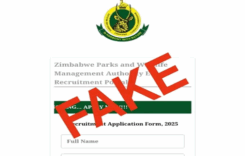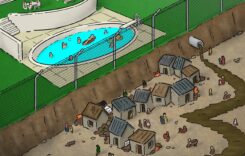On June 14 the government reintroduced tighter measures to contain the spread of COVID-19 after noting a surge in infections arising from general public complacency in social distancing, public gatherings and the wearing of masks.
In the week leading up to June 14, weekly cases had more than doubled to 596 from 226 and the new measures were aimed at helping Zimbabwe from falling into a deadly third wave. In the week following the tightened restrictions, a cumulative 1,702 infections and 37 deaths were reported. June 18 saw the highest daily infections, 408, since January 24.
What are the key components of the new measures?
Ban on public gatherings, including religious ones; strict enforcement of public transport protocols of sanitising vehicles and drastically reducing passengers; no sit-down but take-away services for restaurants; localised lockdowns for COVID-19 hotspots.
Hotspots
As of June 14, Kwekwe, Kariba and Hurungwe had been declared COVID-19. By June 20, Karoi, Chirundu, Magunje, Mhangura, Chinhoyi and Chidamoyo, all in the Mashonaland West province, had been added to the list. Also classified as hotspots are Masvingo district and Chiredzi. Bulawayo’s Nkulumane, Emakhandeni and Northern Suburbs, as well as Mount Darwin in Mashonaland Central, have also been designated as COVID-19 hotspots.
How many people have been vaccinated so far?
Ministry of Health and Child Care statistics show that 703,065 people have received the first dose of COVID-19 vaccines, while 435,668 people had been fully vaccinated by Sunday, June 20, 2021.
Which hospitals and health centres have vaccines?
According to Zimbabwe health officials, most of the major hospitals around the country are offering vaccines to the public. But there have been widespread complaints that some centres have run out of vaccines, with people seeking second doses having to move from centre to centre looking for vaccines.
When did Zimbabwe roll out its Covid-19 vaccination programme?
The vaccination programme was rolled out on February 18, 2021.
Who can be vaccinated?
The vaccination is open to citizens and residents in Zimbabwe — subject to medical stipulations by the vaccine producers and the World Health Organisation (WHO) — but available according to a priority list drawn up by the government. The first phase targeted healthcare workers and other frontline staff. The second phase targeted groups in the education sector, such as teachers, and other less at-risk groups. The third phase of vaccinations will be open to all.
What is the government’s vaccination target?
The government targets to vaccinate 10 million people (60 percent of the population for herd immunity), according to a rollout plan presented by the government to Parliament on February 16.
Which vaccines has Zimbabwe approved so far?
Zimbabwe has so far approved four vaccines; Sinopharm and Sinovac from China, Sputnik V from Russia and COVAXIN from India.
How are vaccines approved?
According to the government, all vaccines are verified by the Pharmacovigilance and Clinical Trials Committee before clearance by the Medicines Control Authority of Zimbabwe. The Pharmacovigilance and Clinical Trials Committee is also responsible for monitoring safety and effectiveness of the vaccine during use.
Can private companies import vaccines?
Private companies, including medical aid firms, can now import vaccines. However, they can only procure the approved COVID-19 vaccines. Further, companies cannot import directly. Procurement is done on the behalf of companies through the National Vaccine Procurement Fund, managed by the Ministry of Finance and Economic Development.
Can private companies administer their own vaccines?
Vaccines imported by private companies are stored at the Ministry of Health facilities, distributed by the government, and administered solely by Ministry of Health staff. The Ministry alone can issue vaccination certificates which show that a person has been vaccinated.
Sources: Ministry of Health and Child Care, Zimbabwe Treasury Department, Cabinet Briefing, Parliament Hansard.
Do you want to use our content? Click Here












